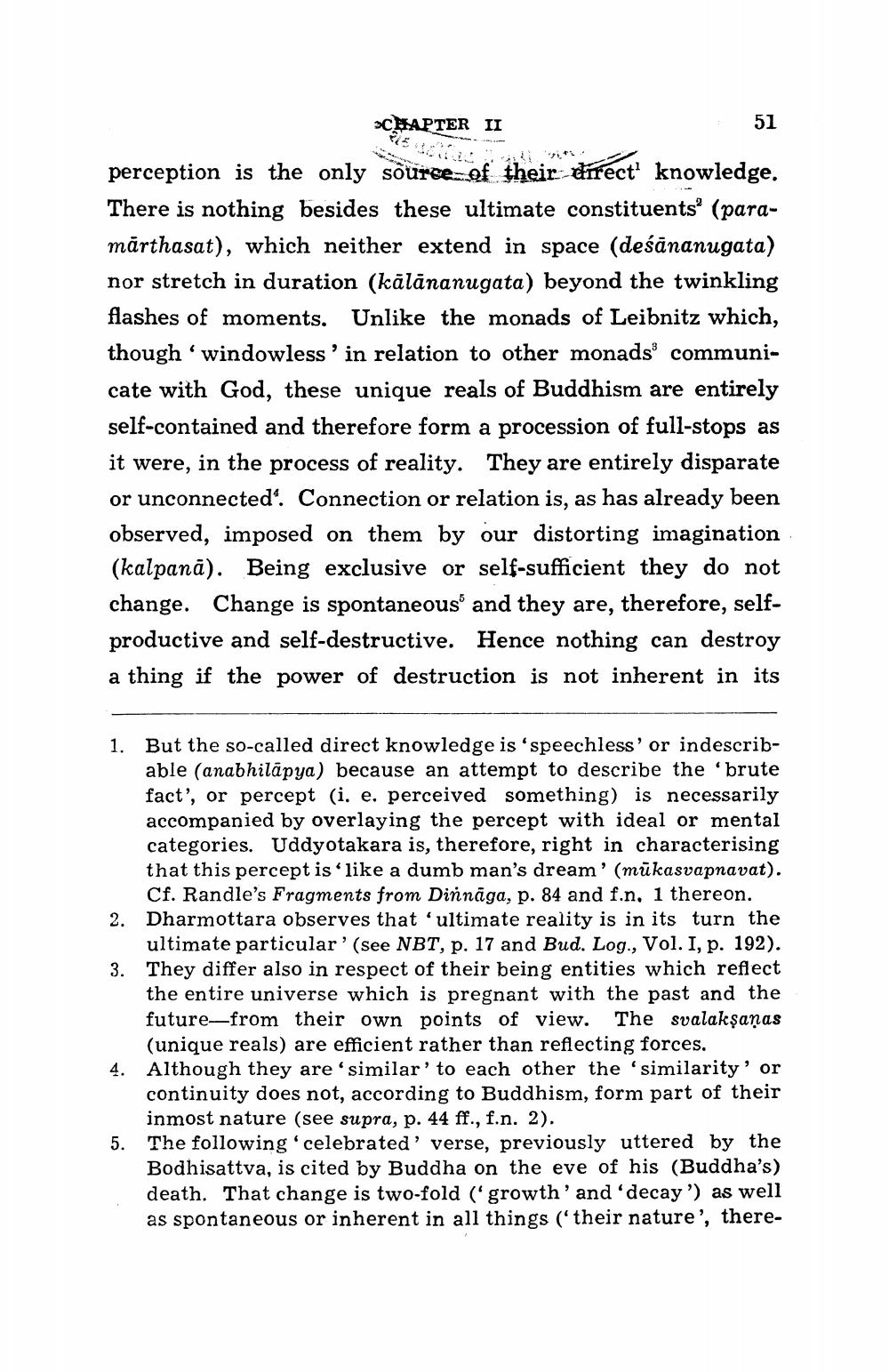________________
51
CHAPTER II perception is the only source of their direct knowledge. There is nothing besides these ultimate constituents” (paramärthasat), which neither extend in space (deśānanugata) nor stretch in duration (kālānanugata) beyond the twinkling flashes of moments. Unlike the monads of Leibnitz which, though 'windowless' in relation to other monadsø communicate with God, these unique reals of Buddhism are entirely self-contained and therefore form a procession of full-stops as it were, in the process of reality. They are entirely disparate or unconnected". Connection or relation is, as has already been observed, imposed on them by our distorting imagination (kalpanā). Being exclusive or self-sufficient they do not change. Change is spontaneous and they are, therefore, selfproductive and self-destructive. Hence nothing can destroy a thing if the power of destruction is not inherent in its
1. But the so-called direct knowledge is speechless' or indescrib
able (anabhilāpya) because an attempt to describe the 'brute fact', or percept (i. e. perceived something) is necessarily accompanied by overlaying the percept with ideal or mental categories. Uddyotakara is, therefore, right in characterising that this percept is like a dumb man's dream' (mūkasvapnavat). Cf. Randle's Fragments from Dinnāga, p. 84 and f.n, 1 thereon. Dharmottara observes that 'ultimate reality is in its turn the ultimate particular' (see NBT, p. 17 and Bud. Log., Vol. I, p. 192). They differ also in respect of their being entities which reflect the entire universe which is pregnant with the past and the future—from their own points of view. The svalakşaņas
(unique reals) are efficient rather than reflecting forces. 4. Although they are similar' to each other the 'similarity' or
continuity does not, according to Buddhism, form part of their
inmost nature (see supra, p. 44 ff., f.n. 2). 5. The following celebrated' verse, previously uttered by the
Bodhisattva, is cited by Buddha on the eve of his (Buddha's) death. That change is two-fold ( growth' and 'decay ') as well as spontaneous or inherent in all things (“their nature', there




